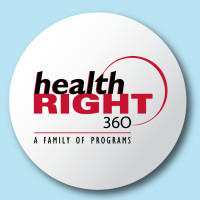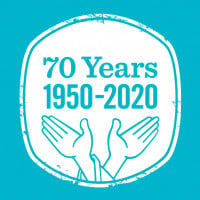PRC - Joe Healy Detox Program
Drug Rehab Center in San Francisco, California
The Joe Healy Detox Program is a reputable rehab facility in San Francisco that offers comprehensive care for patients suffering from substance abuse and mental health disorders, with a focus on evidence-based and compassionate treatment.
About PRC - Joe Healy Detox Program in California
The Joe Healy Detox Program is a reputable rehab facility in San Francisco, California that specializes in the treatment of alcoholism, opioid addiction and dual-diagnosis. Patients suffering from substance abuse issues and mental health disorders can receive comprehensive care here, ranging from detox to aftercare support. The program is accredited by SAMHSA, a national standard for rigorous care that affirms the clinical practices employed.
At Joe Healy Detox Program, the most important goal is to help patients regain the quality of life they once had. Patients can take advantage of a wide range of treatments, from cognitive behavioral therapy, to individual and group counseling, and recreational therapy. To further aid in their recovery, patients can use nicotine replacement therapy and medication to manage cravings and withdrawal symptoms. The trained staff at Joe Healy Detox Program maintain an immense dedication to providing patients with evidence-based, personal and compassionate care for successful and lasting recovery.
Genders
Ages
Modality
Additional
Accreditations
State License
SAMHSA
Conditions and Issues Treated
Opioid addiction starts when a person becomes addicted to legal or illegal opioids. The addiction can happen quickly, in just a matter of days. Opioid withdrawal can be extremely uncomfortable and lead the user to continue to use even if they want to quit. Stopping using an opioid requires medical observation. Sometimes inpatient treatment with a medically supervised detox is necessary for managing the withdrawal process while learning lasting tools for maintaining recovery. Medications may be used in some cases of opioid addiction.
Opioid addiction is one of California‘s most prominent forms of addiction. It’s treated by detoxifying the body so that the chemicals from the medications no longer impact them and by therapies to correct behavior and target the root of the problem.
Recovery is not simply about stopping drug use. Recovery is working with addiction while recovering mental health issues that are fueling the addiction in the first place.
Levels of Care Offered
This center offers a variety of custom treatment tailored to individual recovery. Currently available are Aftercare Support, Detox, Dual-Diagnosis, Inpatient, with additional therapies available as listed below.
Detox is the first step of rehab. It involves giving a person time to get the toxins out of their body. During detox, the patient gets ill and they will often start using again to get rid of these unpleasant feelings. That’s why it’s so important to have a San Francisco medical professional at PRC - Joe Healy Detox Program present. A California medical professional will make sure patients don’t start using during detox. They will also provide medication to ease their symptoms and coach them through on a mental level.
Individuals who are suffering from severe addiction or have a high risk for dangerous health concerns are often recommended to receive inpatient treatment.
Choosing to enter an inpatient treatment program is beneficial for people who are suffering from severe addiction, or who have a high risk for dangerous health concerns.
Inpatient treatment is beneficial for:
- People who have a history of severe withdrawal.
- People who have attempted to overcome addiction on their own without success.
- People who have a history of relapse, or have recently relapsed.
- People at risk for drug overdose or withdrawal-related complications.
- People with medical conditions that are worsened by drug or alcohol use.
Aftercare support should take place after outpatient treatment has ended. There are a few different types of aftercare support that patients can seek. These include 12 Step, Self-help groups (AA, NA), Therapeutic communities, Long-term, structured sober living arrangements, and Halfway houses (residential treatment centers).
Therapies & Programs
Individual therapy involves one-on-one sessions between the patient and therapist. It provides patients with a safe environment to openly discuss personal and sensitive issues with the therapist. They find the therapist as someone they can trust. Individual therapy aims to identify the core issues that would have led the patient to substance abuse and address them effectively. The therapist can develop patient-specific customized solutions through individual therapy, which aids speedier recovery.
Groups typically involve meetings with other recovering addicts who can relate to one another’s experiences. They might meet in person or online and typically focus on the process of staying sober rather than overcoming a specific addiction.
In these groups managed by PRC - Joe Healy Detox Program, addicts can build a sense of community and develop strong emotional connections with others who understand what they are going through. These beneficial relationships can help addicts overcome their cravings and prevent relapse at any point during the recovery process.
In general, trauma therapy is a clinical process that helps individuals deal with mental stress often caused by traumatic events. The therapist helps the person identify, understand, and work through the problem. This is done with the help of talking about it in group or one-on-one counseling sessions. Therapists use relaxation, role-playing, art, and music to help the person open up about what is bothering them.
There are many different types of trauma therapists, such as psychiatric nurses and counselors. Not everyone is a good candidate for this type of therapy; it is generally reserved for people who have recently experienced a traumatic event and struggle to get over it. It is often done for children, teenage victims of sexual assault, and war veterans.
There is hope for people who are addicted to drugs and alcohol. Cognitive Behavioral Therapy (CBT) is the solution. CBT focuses on the underlying thoughts and behaviors that caused the addiction problem in the first place and may cause a relapse. This type of psychotherapy addresses negative feelings common in substance abuse disorders. It helps to change them by restructuring thought patterns. It’s about removing negative thoughts and providing long-term benefits while promoting self-awareness, self-control, and healthy ways to respond to negative thoughts. These sessions can be done by themselves or as part of combination therapy.
Since addiction is a chronic physical and mental illness, addicts need to learn as many life skills as possible. Many drug treatment centers offer life skills activities as part of their addiction recovery programs. Examples include cooking classes, employment training, resume writing seminars, parenting classes, and computer training. Life skills activities help addicts find employment, take care of their families, and give back to the community.
Patient Experience
Experiential Therapy at PRC - Joe Healy Detox Program
Experiential Therapy teaches people how to think differently about their lives and change their emotions by changing their behavior. This type of treatment is accomplished with various activities that may involve acting, props, arts and crafts, animal care, or other tools that may be effective.
This therapy aims for patients to release suppressed thoughts that cause bad feelings and drug addiction. Role-playing, arts and crafts, music, animal care, rock climbing, etc., are some of the activities used in this therapy. Gradually an individual will feel calmer and more loving which will change their perception positively. In addition to treating drug addiction, experiential therapy is beneficial for different behavioral and eating disorders.
Payment Options Accepted
For specific insurance or payment methods please contact us.
Additional Details
Specifics, location, and helpful extra information.
San Francisco, California 94102 Phone Number(415) 864-4965 Meta DetailsUpdated November 25, 2023
Staff Verified
PRC - Joe Healy Detox Program Patient Reviews
There are no reviews yet. Be the first one to write one.
San Francisco, California Addiction Information
More than 3 million of California's citizens are addicted to illegal drugs. Almost 800,000 people use hard drugs, almost 5 million use marijuana, and another 2.1 million abuse alcohol every year. Other substance abuse issues such as binge drinking and teen drug use are also common. Many illegal drugs such as cocaine, heroin, methamphetamine, and marijuana are smuggled into the state from Mexico.
There were 1,93 overdose deaths in San Francisco in 2016. This is a significant increase from the 1,11 overdose deaths reported in 2015. 16% of San Francisco residents aged 12 and older reported using an illicit drug. Drug abuse and addiction cost San Francisco an estimated $5 billion yearly. San Francisco's drug treatment facilities are designed to meet each patient's unique needs, providing the support and resources necessary for a successful recovery.
Treatment in Nearby Cities
- Lancaster, CA (319.8 mi.)
- Thousand Oaks, CA (319.9 mi.)
- Encinitas, CA (436.9 mi.)
- West Covina, CA (358.8 mi.)
- Pleasanton, CA (30.9 mi.)
Centers near PRC - Joe Healy Detox Program
The facility name, logo and brand are the property and registered trademarks of PRC - Joe Healy Detox Program, and are being used for identification and informational purposes only. Use of these names, logos and brands shall not imply endorsement. RehabNow.org is not affiliated with or sponsored by PRC - Joe Healy Detox Program.





